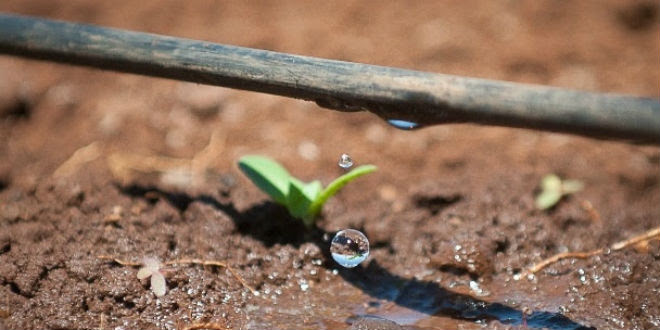Is Israeli clean vegetable technology extremely safe? Not necessarily
Israelis who eat vegetables that are irrigated with recycled wastewater are increasing their exposure to substances in epilepsy drugs.
We all know that Israel has a highly developed agriculture. Many modern technologies and processes applied by this country in cultivation to overcome the disadvantage of farming conditions, typically lack of fresh water.
However, one of these technologies is showing insecurity. Specifically, the scarcity of freshwater is causing Israel to intensify the use of recycled wastewater to irrigate crops. At the same time, this also increases chemical exposures in their food .
Recently, a multidisciplinary research group from Hebrew University and Israel's Hadassah Medical Center discovered: people who eat vegetables grown in soil irrigated with recycled wastewater are exposed to a chemical called carbamazepine. . This compound is derived from an antiepileptic drug, and appears in waste water.
The research results were published in the journal Environmental Science & Technology.

The famous drip irrigation technology of Israeli agriculture.
"Israel is a pioneer in the world using recycled and recycled wastewater in the agricultural sector, " said Professor Benny Chefetz of the Department of Agriculture and Environmental Food, University of Habrew. Therefore, it will be necessary to carry out studies to assess the health of consumers of agricultural products using affected waste water. Chefetz's work is the first study to address this specific purpose.
"In a randomized trial, we demonstrated that healthy people consuming agricultural products irrigated with recycled wastewater have the presence of carbamazepine and urine metabolites. Meanwhile, people "Eating fruits and vegetables with clean water almost does not detect the level of carbamazepine," said Professor Ora Paltiel, principal of the Hebrew University School of Public Health.
The study followed 34 men and women, divided into 2 groups. The first group is directed to consume vegetables and fruits with recycled wastewater for 1 week, then switch to watering products with clean water. The second group performs in reverse order.
Volunteers consume agricultural products including: tomatoes, cucumbers, peppers and lettuce. In addition, they eat in a normal regimen and drink bottled water synchronized throughout the study period.

The idea of the study is presented in the report.
Scientists measured carbamazepine levels in volunteers' fresh and injected urine products after consuming them. The initial time before eating vegetables and fruits with recycled wastewater, carbamazepine was not detected, or if available, at very low concentrations. After 7 days, those in the first group found a clear quantitative level of carbamazepine, the second group did not change.
" Agricultural products using recycled wastewater also exhibit a significantly higher level of carbamazepine than using clean water , " Professor Paltiel said. "It is clear that people who consume products on recycled soil are increasing their exposure to substances in this epilepsy drug. Although their detection levels are much lower than those used by patients. real medicine ".
In addition to the conclusion, Professor Chefetz said: "This is evidence for the idea that consumers are exposed to pharmaceutical compounds through the digestion of commercial agricultural products." Data provided in the study can help policy makers assess the level of risk for this problem. In the future, many similar studies will also have to be done.
- Are we living too clean?
- Robots help travelers to take care of clean vegetables at home
- Planting vegetables by hydroponic method
- Students with a vegetable planting project do not need soil
- Safe vegetable production process according to VietGAP standards
- Technology irrigates Israel to the driest land in Central Vietnam
- Software turns containers into vegetable gardens
- Make farming easier thanks to greenhouse technology
- Indoor farms provide high productivity
- Clean technology is lacking capital
- How to plant clean lettuce in foam containers
- The system helps Israeli farmers water with smartphones
 Green tea cleans teeth better than mouthwash?
Green tea cleans teeth better than mouthwash? Death kiss: This is why you should not let anyone kiss your baby's lips
Death kiss: This is why you should not let anyone kiss your baby's lips What is salmonellosis?
What is salmonellosis? Caution should be exercised when using aloe vera through eating and drinking
Caution should be exercised when using aloe vera through eating and drinking